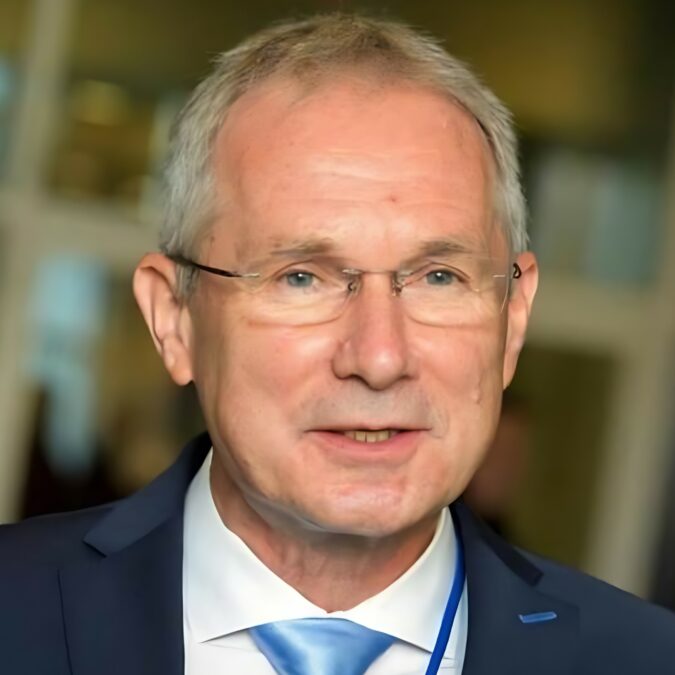NEW YORK – Despite geopolitical rivalries, “our survival depends on our cooperation,” said the UN General Assembly’s outgoing President Csaba Kőrösi (Hungary) while seeking Member States’ international cooperation to forge future-proof integrated solutions to global challenges and uphold their promises to the world’s eight billion people.
He highlighted that the 2023 UN Water Conference demonstrated that it is possible to overcome long-standing divides. Stressing that “we are in a race against time” on issues from climate change and biodiversity loss to education and gender equality, he called on Member States to “put money where our promises are” — supporting sustainable development with appropriate regulations, financing, capacity-building and verification.
“Multilateralism is our only option to tackle the many crises of the world,” he emphasized. Stressing that the war in Ukraine — along with 51 other armed conflicts — must end, he reiterated the call to end nuclear proliferation and nuclear armament. He noted that December will mark the seventy-fifth anniversary of the Universal Declaration on Human Rights, and that a year ago, the Assembly adopted a historic resolution declaring access to a clean, healthy and sustainable environment a universal human right.
While “we are only starting to understand and unpack what rights and responsibilities will mean in the next stage of our Anthropocene era,” he emphasized that “young people will hold us accountable for our inactions”. The multilateral system demands cooperation on a global scale, he emphasised — from addressing climate change and cybercrime to respecting human rights online and the use of artificial intelligence.

Citing the upcoming 2023 Sustainable Development Goals Summit, he urged Member States to bring the sustainability transformation to life by reprioritizing spending in every country. Calling for urgent UN reform, he noted that the world’s first passenger jet aircraft carried 36 passengers in 1952 — but “that doesn’t mean that we can use it today to take us to Mars”. Times are evolving, and the Organization must evolve with them.
While the Charter of the United Nations does not make this task easy, “until we change it, our task is to apply it”. This means avoiding its selective application on conflict management, mass atrocities, genocide and other war crimes. Otherwise, the Security Council will be more of a problem than a solution to global instability. Similarly, the General Assembly must adjust its own sails, he said, pointing out that a policymaking body with more than 180 priorities has no strategic direction.
Voicing concern about inherited and repetitive debates which occupy too much of the Organization’s time, he warned: “Reinforcing old positions of ancient debates invariably means we will lose sight of current challenges.” Global finance is not yet working to help with climate change, nor to protect the most vulnerable. “When international law or the UN Charter is violated, and we do nothing — we are hiding from our common responsibility,” he stated. “And we are deceiving the people we represent,” which brings into question the relevance of the United Nations.
The Organization must be agile, using science as a critical shaper of an understanding of reality upon which basic decisions should be made. It is not against anyone’s national or cultural heritage — rather “it is the way for us to reflect the heritage in our decisions. We’ve let science in this term, let’s not push it out in the next ones,” he stressed.
At the meeting’s outset, Amina Mohammed, United Nations Deputy Secretary-General, speaking on behalf of Secretary-General António Guterres, said that despite last year’s challenges to the human family — conflicts and rising geopolitical mistrust; heatwaves, fires and melting sea ice caused by climate chaos; and rising poverty, inequality, discrimination and injustice — the Assembly’s seventy-seventh session kept diplomacy, dialogue and debate alive, and worked toward real solutions for people and planet alike.
Highlighting Mr. Kőrösi’s consummate skill and stewardship in presiding over the session, she said: “His leadership exemplified his commitment to ‘solutions through solidarity, sustainability and science’ — including his advocacy of science-based validation of sustainability investments, particularly as it pertains to the environmental crisis engulfing our world.” His work was critical to ensuring a well-coordinated and ambitious UN Water Conference — including the subsequent negotiations among Member States on a resolution to maintain momentum on this issue going forward, she added. She voiced appreciation for his tireless work leading up to the Sustainable Development Goals Summit where global leaders in two weeks’ time must commit to rescuing the Sustainable Development Goals for a better future for humanity, as well as his support on advancing Our Common Agenda, which included ensuring vibrant Member State discussions around the Summit of the Future, the Global Digital Compact and the Declaration on Future Generations. All were enriched by his deep knowledge of the role and function of the United Nations, she pointed out.
“Let’s all commit to using this Assembly as a proving ground for multilateralism, to build trust, cohesion and solidarity among nations and ensure that we shape solutions that will benefit people and communities around the world,” she said.








